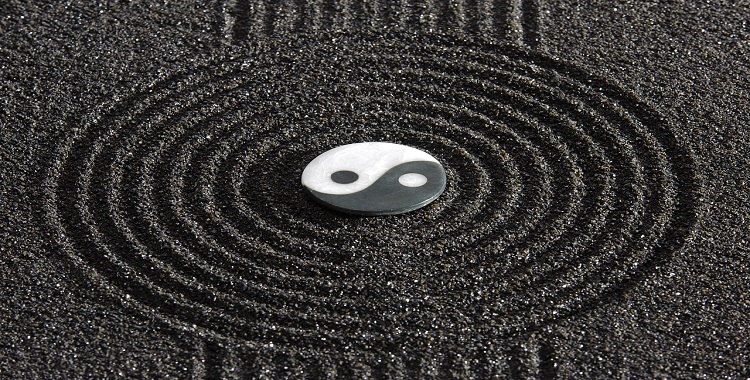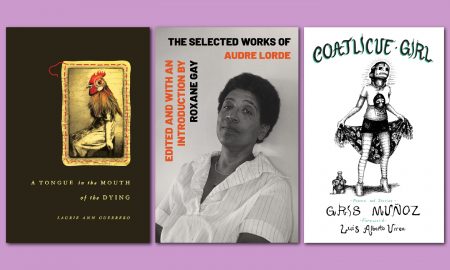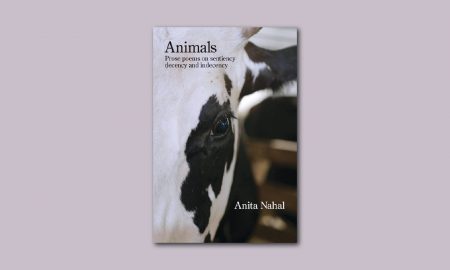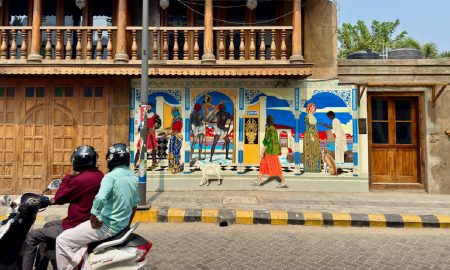Note: This poem is best viewed on a Desktop Computer with widescreen.
| December: the table’s sinking in drinkable amnesia and your eyes are nobodies frenzied with potential. It is 2009. | In 2013 you say I am a poet. It is dark and we have been dancing. By the end of the year I’ll be unsure of my architecture and you, you’ll be ascending. |
| Summer in two years’ time: the city’s blocked by fences and cranes as we stand in their shadow drinking and soothsaying, the wonder in your tone medicinal, treating an intimate need, imperceptible yet lethal. | Before I cycle home, intoxicated, along the spine of the capital we are in your kitchen as the sun rises and pictures of your lovers appear and are replaced repeatedly, scene after scene. It is, quite unbelievably, 2015. |
| On the way home I meet a man named Hercules lurking in an interrogative glare– the sobering lights of convenience. He is your opposite. The Kurdish kebab-maker wishes us well, tells us our country’s been a blessing and a curse, Hercules saying he plays rugby on Saturdays with the processed meat subduing his body’s impending rejection of fluid. I will remember this feeling of willing remembering I think later as I leave his bedroom which features angles as layers of longing. | 2020, before: still in bars, still eating next to each other when I say children will happen or they won’t as if there’s a master, a general, an arbiter- someone to make plans on my behalf. Then we spoke (or didn’t) about our respective languages- yours and mine- and you didn’t understand me and I didn’t understand you. And all the while, our mothers and fathers have been living out lives no different from ours. |

| What is mine?: | Incursions onto already lived-on land were nothing new in the 12th century. It’s 2012 on one of two islands and England have lost to Italy. Penalties again. When pitted against culture, land has the advantage of being tangible and observable from space as a recognisable geometrical form… The triad of expectation, pressure and disappointment is a key factor of Englishness, whatever that may be. …but culture rages within, unnoticeably, rabidly | |
| What is yours?: | We’ve stayed on after the event. I’m living with a shame I won’t be even near to grasping until five years in the future. Supporters in white shirts, red shirts pass us by. We’re on our fourth round. If there’s anger (and perhaps fear?) in your reaction to the Anglo colours, I don’t give it any thought until much, much later. Partition as a solution to the loss of colonial control was the decision of rulers who must’ve felt the mere existence of human life is a slippery slope to cooperation. You’re on rare form, desperate to talk about all that we cannot say. Cannot or dare not? As far as I understand it, the beginning of the civil rights movement in Northern Ireland, 1967, sought to address, amongst other things, the voter eligibility and the allocation of housing for the Catholic community. Because what else has all this drinking been for? | |
| A matter of perspective: | Don’t you think, you say, that the fabricated tension between the rational and the spiritual is a problem? At the Bogside Massacre 26 unarmed civilians were shot for protesting the British practice of internment without trial. Aren’t all philosophical tensions fabricated in the sense that they have no personal stakes in any of our discussions? Two people, one a child, were killed in Warrington by an IRA bomb. But what I mean, you know, is that I don’t see why I have to jettison some need, some desire for mysticism if I don’t necessarily believe in the paranormal as a good method of governance. Like, maybe I’d want to go pray, to have that routine, to meet up with people, to feel some community. Who doesn’t? Quantitative methodologies are more likely to receive funding for academic research, the results being easier to compare. So go pray then, I say. Incidentally, on the TV in England Nelson Mandela is generally looked upon favourably now. | |
| Time in history: | I become aware of how hot it is. It’s gone 10pm and still we’re in t-shirts outside. I want to say something that matters. But I’m thinking too much about Friday when I was on a night bus with someone I’d just met and we were taking videos as various scenes happened around us: a group of white students singing in Spanish; two brown women in headscarves talking to one another; a white couple in front of us arguing in French; three black guys listening to grime on a phone; a white man in his mid-30s trying to discretely vomit into his bag; a black guy and a white woman eating burgers together. The videos didn’t concern any of them. They were focused on our white, English faces, our mouths explaining, introducing ourselves, saying our names and one thing we hoped to forget about this night. You’re noticing my detachment. You say, rhotically, you’re good for one more. I agree. As I bring the pint glasses to our table, my grip of the cold, smooth surfaces is reminiscent of home somehow. Solid entities. Relief. The parts of childhood that were comforting. The parts I rarely dwell on. Though they were plenty, weren’t they? And what about yourself?, you ask. Now I’m OK eluding to personal generalities: of course I’m drawn to the metaphysical and of course I feel a lack and so on. But those manifestations, you say. What’s become of yours? I could tell you that as the stranger and myself got off the night bus and walked to mine it struck me it’s always the anticipation of memory that most entrances me about any encounter. I could tell you that he was athletic and hung. I could tell you that afterwards the memory gets rewritten by fantasy, the possible worlds that we’ll perhaps never know. When, years on, the memory is revisited, if it is scrutinised at all, I play the role of archaeologist, excavating fossilised truths whose absence is barely noted but whose sudden presence plunges the lived reality of now into a terrible disruptive doubt. But I will not say these things. I’ll tell you instead that I’d be fine enough living anywhere but that I wish there was a better way for us to be. Ah, you say, you know the one about ‘two bald men fighting over a comb’. Yes, I say, but tell me what does victory mean for you? Dunno. I suppose it’s… Well obviously some people do win and they probably feel… not good. It’s not a satisfying feeling but it’s the fear of loss. As soon as you have something you can lose it. Someone else could get it. And that goes for relationships too. Obtaining and possessing, and by extension, losing. Again and again. Is that all it is? The same for everything. Like, I have this drink but I’m already thinking about getting the next one because I’m going to lose the one I have. So if that’s just a drink, you know? Then imagine… Because when I was younger I didn’t understand anyone’s actions. Controlling those you don’t care for is so much effort to make. But then… if I tried it, I’d get used to it too. Just as anyone does. Oh and by the way, it’s not like I’ve ever been to a service I’ve enjoyed. It’s not that. I hated communion. No, it’s just that, what, it’s that it’s the hunger for… You know, do we ever talk about that? Because, how can we? The yearning. Isn’t that what it used to be called? It’s… having without having. Individually you get that. But collectively? That’s what it’s like for… And of course it’s easier to placate individuals. Individuals are expected to behave rationally. So then what… what it is is that there’s something so threatening about the non-rational. The collective non-rational. See, but then you go out with someone and it’s one on one so… you know, I’m saying: blood and guts / tables and chairs. Within the beast are thousands of tiny animals screaming to be heard. Because there are procedures, practices, traditions – because traditions are rituals without catharsis – and these things have weight for individuals as rational acts. I mean, I dunno, but there must be… there has to be recognition. Recognising that it’s all… not to edit, to reduce. Why can’t we say something and mean everything? And, I dunno. You know, it’s… I mean in the end I think it’s just battles and prayer, invasions and sacrifice, the stoic and the mystic. It’s English castles, Irish churches. |
***





